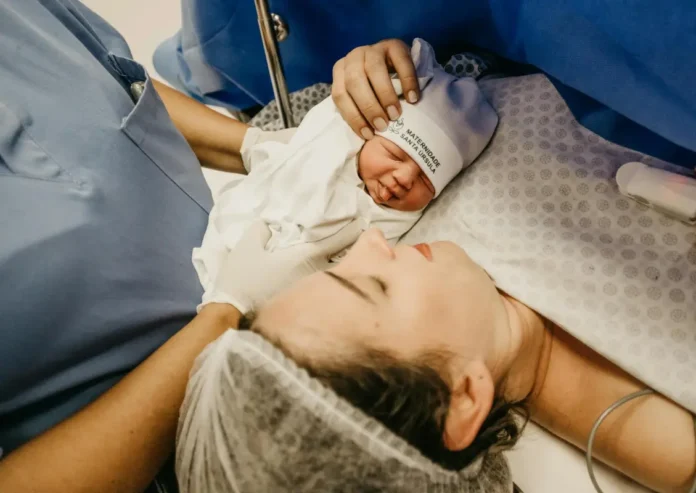Postpartum psychosis is a rare but serious mental health condition that can affect women after childbirth. It is a medical emergency that requires immediate attention. In this article, we’ll explore what postpartum psychosis is, its symptoms, causes, and treatment options. Whether you’re a new mother, a family member, or a healthcare provider, understanding this condition is crucial for early intervention and effective management.
What is Postpartum Psychosis?
Postpartum psychosis is a severe mental health disorder that typically occurs within the first two weeks after childbirth, though it can develop up to 12 weeks postpartum. It is characterized by a loss of touch with reality, including hallucinations, delusions, and extreme mood swings. Unlike the “baby blues” or postpartum depression, postpartum psychosis is rare, affecting approximately 1 to 2 out of every 1,000 women who give birth.
This condition is considered a psychiatric emergency because it can pose risks to both the mother and the baby. Early recognition and treatment are essential to ensure the safety and well-being of everyone involved.
Symptoms of Postpartum Psychosis
The symptoms of postpartum psychosis can develop suddenly and escalate quickly. They may include:
Hallucinations:
Hearing, seeing, or feeling things that aren’t there.
Delusions:
Strong beliefs in things that are not based in reality, such as thinking the baby is possessed or that someone is trying to harm them.
Severe Mood Swings:
Rapid shifts between extreme highs (mania) and lows (depression).
Confusion and Disorientation:
Difficulty thinking clearly or understanding what’s happening.
Paranoia:
Feeling suspicious or fearful of others, even loved ones.
Insomnia:
Inability to sleep, even when exhausted.
Agitation or Restlessness:
Inability to sit still or relax.
Thoughts of Harm:
Thoughts of harming oneself, the baby, or others.
If you or someone you know is experiencing these symptoms, seek medical help immediately. Postpartum psychosis is treatable, but timely intervention is critical.
Causes of Postpartum Psychosis
The exact cause of postpartum psychosis is not fully understood, but several factors may contribute to its development:
Hormonal Changes:
The dramatic drop in estrogen and progesterone levels after childbirth may play a role in triggering psychosis.
Genetic Predisposition:
Women with a family history of bipolar disorder, schizophrenia, or postpartum psychosis are at higher risk.
Previous Mental Health Conditions:
A history of bipolar disorder, schizophrenia, or a previous episode of postpartum psychosis increases the likelihood of developing the condition.
Sleep Deprivation:
Lack of sleep after childbirth can exacerbate mental health issues.
Stress and Trauma:
A difficult pregnancy, traumatic birth experience, or lack of support can contribute to the onset of psychosis.
Treatment for Postpartum Psychosis
Postpartum psychosis is a medical emergency that requires immediate treatment. The goal of treatment is to stabilize the mother’s mental health, ensure the safety of both the mother and the baby, and provide ongoing support. Treatment options include:
1. Hospitalization
In most cases, hospitalization is necessary to ensure the safety of the mother and baby. This allows for close monitoring and immediate intervention if symptoms worsen.
2. Medication
Medications are often prescribed to manage symptoms and stabilize mood. These may include:
Antipsychotics:
To treat hallucinations and delusions.
Mood Stabilizers:
Mood Stabilizers are used to manage extreme mood swings.
Antidepressants:
To address depressive symptoms, if present.
3. Therapy
Psychotherapy, such as cognitive-behavioral therapy (CBT), can help the mother process her experience and develop coping strategies. Family therapy may also be beneficial to support the entire family unit.
4. Support Systems
A strong support system is crucial for recovery. This includes family, friends, and healthcare providers who can offer emotional and practical support.
5. Electroconvulsive Therapy (ECT)
In severe cases where medication and therapy are not effective, ECT may be considered. ECT involves passing electrical currents through the brain to induce a controlled seizure, which can help alleviate severe symptoms.
Can Postpartum Psychosis Be Prevented?
While it may not always be possible to prevent postpartum psychosis, there are steps that can reduce the risk:
Early Screening:
Women with a history of bipolar disorder or postpartum psychosis should be closely monitored during and after pregnancy.
Education:
Educating women and their families about the signs and symptoms of postpartum psychosis can lead to earlier intervention.
Support:
Ensuring the mother has adequate support during the postpartum period can help reduce stress and improve mental health outcomes.
Postpartum Psychosis vs. Postpartum Depression
It’s important to distinguish between postpartum psychosis and postpartum depression, as they require different approaches to treatment. Postpartum depression is more common and involves feelings of sadness, hopelessness, and fatigue, but it does not include hallucinations or delusions. Postpartum psychosis, on the other hand, is more severe and involves a loss of touch with reality.
Conclusion
Postpartum psychosis is a rare but serious condition that requires immediate medical attention. Understanding the symptoms, causes, and treatment options is essential for ensuring the safety and well-being of both the mother and the baby. If you or someone you know is experiencing symptoms of postpartum psychosis, seek help right away. With proper treatment and support, recovery is possible, and women can go on to lead healthy, fulfilling lives.



